Mozambique: House arrest bracelets will be introduced in the country by December - Watch
Dhlakama’s death: Renamo leader died at a time peace was growing – Mozambique
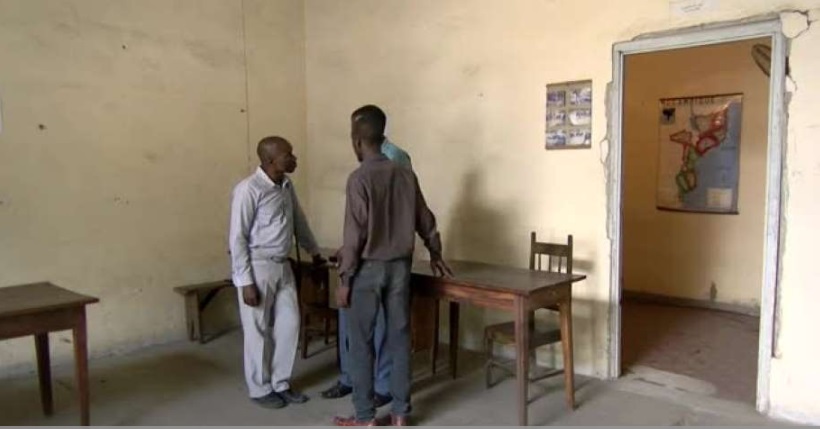
Afonso Dhlakama died at a time when peace is showing signs of taking root in central Mozambique, but two years ago it was different.
In February 2016, Bernardo Jose decided to flee the city of Dondo because of the kidnapping of National Resistance Mozambican (Renamo) leaders.
It was the era of “persecution” attributed to Frelimo government forces, and Jose remembers four party colleagues who never showed up again. Jose, head of the Renamo district delegation, did not want to be the fifth, and spent a year and five months living in other cities in the centre of the country.
The rumour was that he gave logistical support to Dhlakama’s base, right next door but almost inaccessible in the nearby Gorongosa mountains. It was false, he asserts, a lie he attributes to the strategies of that era of unrest.
“We can say that this is over,” he says, aged 56 and standing at the door of the Renamo Dondo district office, to which he returned. Just as the intense movement of cargo lorries returned, right the on National Road 6.
Before the ceasefire declared by Dhlakama at the end of 2016, there were frequent attacks on drivers there, as well as on the Sena railway line that runs parallel to the road, with Renamo and the Mozambican armed forces exchanging accusations about who did what.
Peace has now becomes the norm, but “all care is little”, says Bernardo, even after the last year saw the opposition leader and the President Nyusi happily greet each other in the mountains Dhlakama lived.
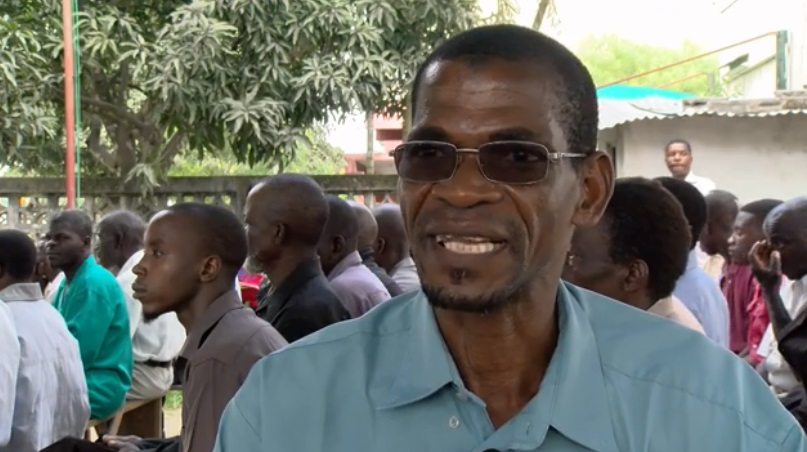
“If Afonso Dhlakama died in the woods, it is because he did not have enough confidence” to leave his stronghold once and for all, he deduces.
This suspicion does not mean that the Renamo military doesn’t want peace, Luísa Jequecene explains.
“We Mozambicans all want peace,” she says, but trust will take time, especially for those who, like her, met the leader as a guerrilla commander in the Gorongosa mountains in 1985.
Luiza was 16 when her area, Cheringoma, was taken over by Renamo, becoming a “liberated zone” and sending her and other girls into the female detachment.
She says that she had her parents’ consent, and that she continued her schooling in the guerrilla bases – in huts, without a notebook – and recalled sessions in which Dhlakama explained to them that the war was about liberation from the Frelimo Marxist regime.
The weapons had to be constantly at the ready: AKM assault rifles, bazookas and 80 and 60 millimetre mortars, an inventory still on the tip of the tongue of 50-year-old Renamo captain Pedro Francisco.
There were “ambushes on the roads and it did not take much weaponry” to launch attacks against structures “of the Frelimo government”.
Today, with six children, another war is on. “Some are studying and others finished Grade 12 four years ago and still cannot get a job.”
“There are no jobs, it is our government that is responsible. There is nothing to do. I try to support my children. That’s the problem here in Mozambique,” says Pedro Francisco, on the threshold of a new electoral cycle in the country.
Afonso Dhlakama died within five months of local elections in Mozambique, but that does not affect Renamo’s ambition to win the Dondo municipality, which it considers to be a historic bastion of the party, 30 kilometres from the city of Beira and en route to Gorongosa.
“If it remains in Frelimo hands of, it’s because they have a machine for stealing elections. They are great election thieves,” José says.
The way the leader died was a milestone of sorts, he says. “President Dhlakama’s death was a victory for us. If he had fallen in the war, it would ave been a defeat.”
Peace is the end-point of all the talking outside Renamo’s Dondo district office, the hope being that, even without the leader who negotiated it, the party will be able to carry on the talks with the country’s president.
Luísa has five children: two boys and three girls, a clutch of reasons to believe in a political process of pacification and development in Mozambique. One of the future women in the house dreams that one day she will become a soldier, as Luisa was. “I have not told her yet, but I chose my dream for her,” she says, adding that it would be a symbol of re-established confidence to have a Mozambican military daughter in the force her mother fought against with Renamo weapons in the woods, now unified once and for all.


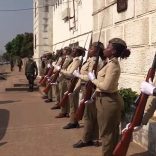


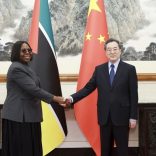
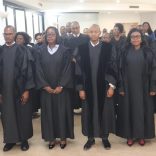





Leave a Reply
Be the First to Comment!
You must be logged in to post a comment.
You must be logged in to post a comment.